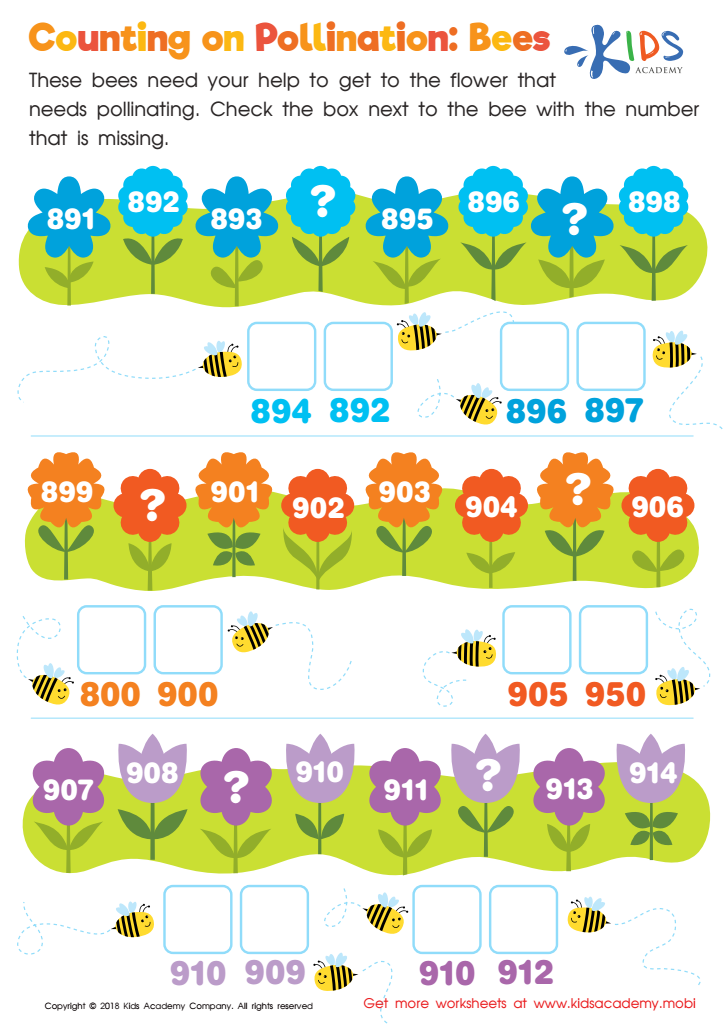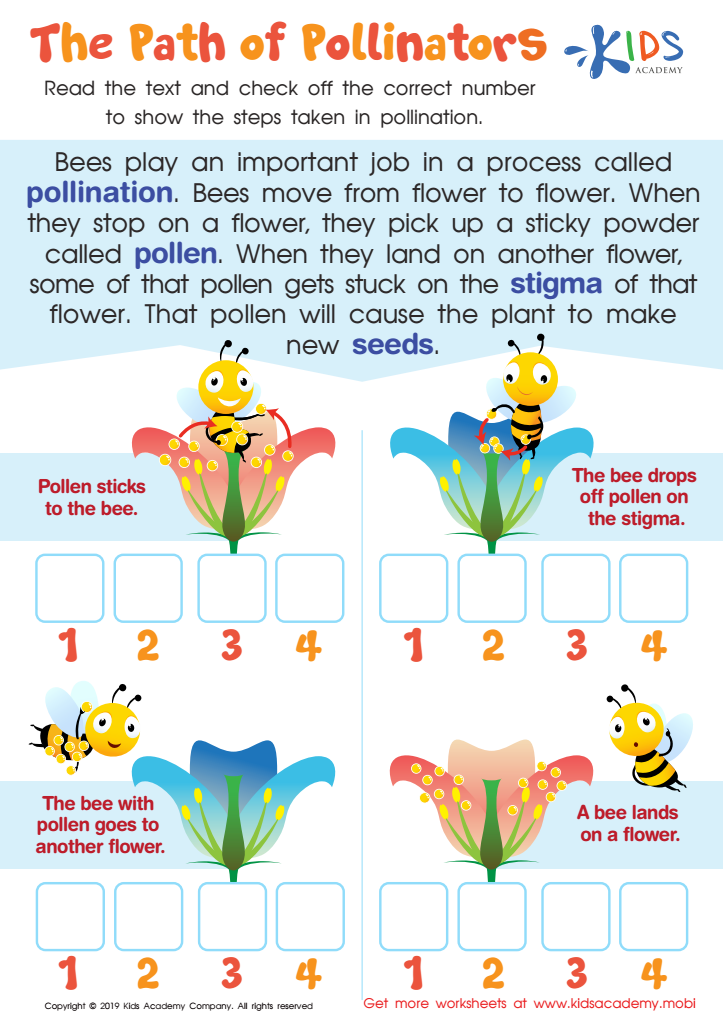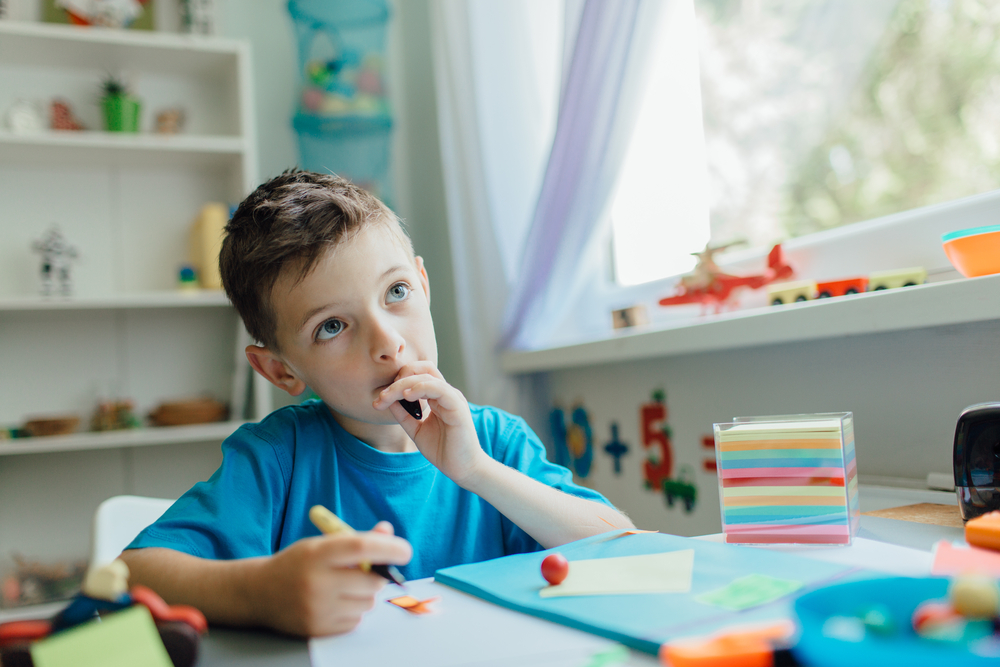Understanding pollination Science Worksheets for Ages 6-8
3 filtered results
-
From - To
Explore the fascinating world of pollination with our engaging Science Worksheets designed for children ages 6-8! These worksheets provide a fun and interactive way for young learners to understand the vital process of pollination and its role in nature. Through captivating illustrations, simple explanations, and hands-on activities, kids will discover how plants reproduce, the importance of pollinators, and the impact on our environment. Encourage curiosity about the natural world while enhancing learning skills in science, reading, and critical thinking. Perfect for classrooms or at-home learning, these worksheets make understanding pollination an exciting adventure!


Counting on Pollination: Bees Worksheet


Pollinator Positions Worksheet


The Path of Pollinators Worksheet
Understanding pollination science is crucial for parents and teachers of children aged 6-8 for several reasons. First, it fosters curiosity about the natural world. Pollination, a vital process in plant reproduction, connects young learners to the environment, nurturing their inherent wonder about nature. Engaging with this topic encourages inquiry-based learning, where kids ask questions, explore, and develop critical thinking skills.
Second, pollination science plays an essential role in their comprehension of ecosystems. Kids learn how various species depend on each other, cultivating an appreciation for biodiversity. This foundational knowledge is essential as children begin to grasp large-scale environmental issues, such as species extinction and climate change.
Additionally, teaching kids about pollination promotes awareness of healthy nutrition. Understanding that many of the foods they eat, like fruits and vegetables, come from plants that rely on pollinators can inspire healthier eating habits and a stronger connection to where their food comes from.
Finally, introducing pollination science instills a sense of responsibility toward protecting the environment. Educating children about the importance of pollinators, like bees, fosters a commitment to conservation from a young age, ensuring they grow into environmentally aware and engaged adults.
 Assign to My Students
Assign to My Students





%20(1).jpg)











